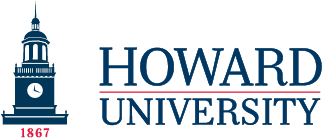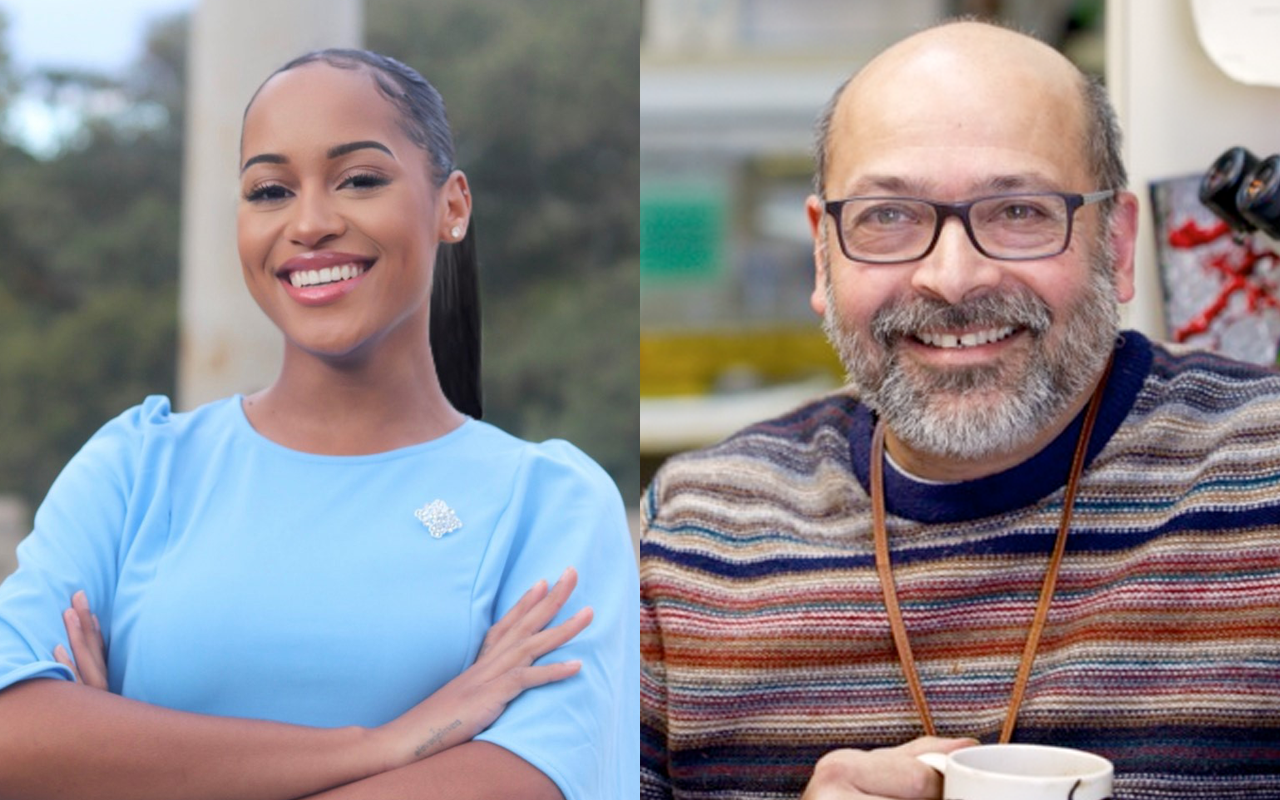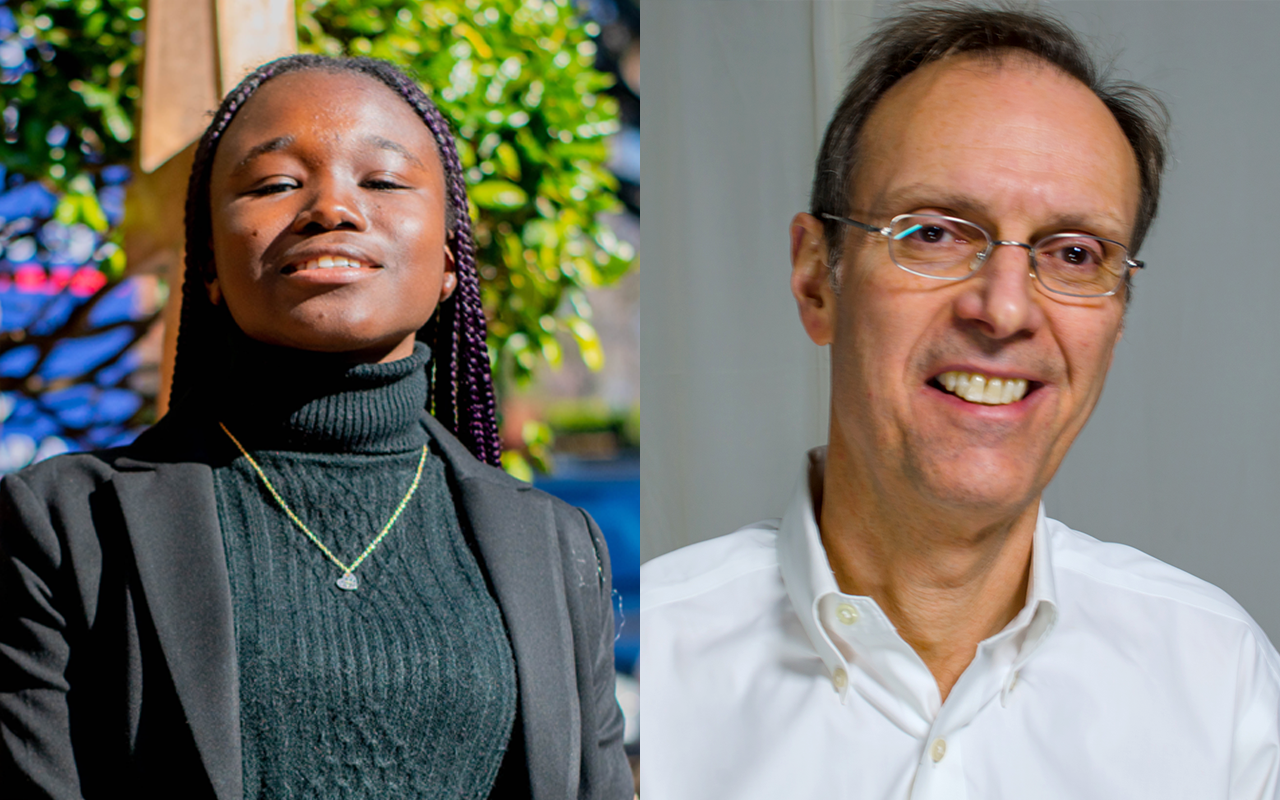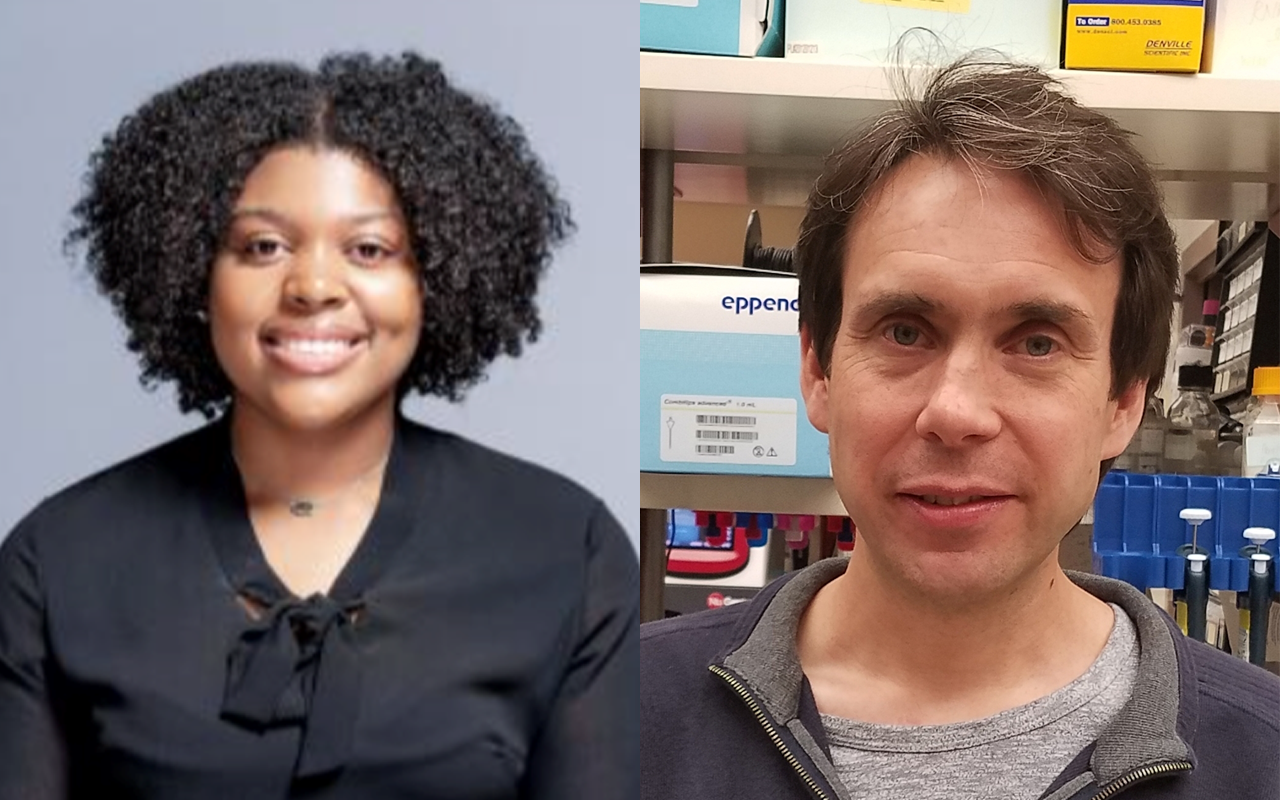
“It’s great to connect institutions that are breaking down barriers,” says Janelle Burke, PhD, Associate Professor at Howard University, a historically Black university in Washington, D.C. For the last semester, Dr. Burke has led the NICHD DIR-Howard University Partnership program in collaboration with Triesta Fowler, MD, Director of Communications and Outreach in the NICHD Office of Education. * The initiative, which is part of the broader 2019 NIH Master Affiliation Agreement, aims to bolster research experience for underrepresented groups in science and provide NICHD labs with diverse perspectives from Howard University students. It’s a unique setup, where NICHD principal investigators who would like to be research mentors present their research to Howard University sophomore biology honors students. The students then reach out to the investigators for collaboration based on their interests. Once the mentor student pairing is confirmed, the investigator becomes the student’s official research mentor and guides them in the development and execution a project over the next two years. This effort has yielded four successful pairings to date.
Dr. Burke has observed multiple benefits to the Howard University students participating in the program. Already, students have gained mentors beyond Howard faculty and have explored complex scientific literature. Once COVID-19 restrictions are lifted, Dr. Burke anticipates that the students will see how a lab is structured at a research-focused institution, interact with scientists at different career stages, and gain valuable bench skills and other transferrable skills.
In addition to these tangible benefits, increasing racial and ethnic representation in the sciences has the potential to catalyze even wider effects. “The career paths we take often depend on our ability to simply imagine ourselves in a particular role or profession,” explains Ajay Chitnis, PhD, mentor to Howard student Morgan Ford . “Recognition of growing polarization, disparity and racial injustice in our society, coupled with remarkable institutional resistance to efforts geared towards educating people about the deep historical roots of these problems, leaves me frustrated… This project provides a window to a career in science, where Black students are significantly under-represented.”
Henry Levin, PhD, mentor to Howard student Ayanfeoluwa Kolawole, adds that “all too often NIH trainees come from families experienced in preparing for careers in science.” For Dr. Levin, he’s drawn to the program because it creates opportunities for bright students who might not otherwise have access to the valuable training offered at NIH. “The benefits go both ways: Howard students are exposed to leading areas of research, and NIH gains a diverse research community with new ideas and approaches,” Dr. Levin says.
For other PIs, it’s the students’ optimistic and vibrant attitudes toward research that can invigorate the lab environment. For example, Harold Burgess, PhD, mentor to Howard student Katelyn Robertson, says he finds “value in including somebody who can ask fresh, enthusiastic questions and give senior researchers an opportunity to share their skills and experience.”
Incoming students should know that a focus on learning the scientific literature is a hallmark of the program, especially when interaction is limited to virtual meetings during the pandemic. All participating PIs agreed that students should choose mentors who satisfy their curiosity and that the pair should establish expectations early on. “Most important is to find a mentor whose work is of interest to you, and then work with the mentor to set clear goals for the experience,” says Jack Yanovski, MD, PhD, mentor to Howard student Alexa Moore . “Make sure the plan will allow both the trainee and the mentor to feel expectations were met—or exceeded, as was the case for my time with Alexa.”
Looking forward, everyone anxiously awaits a return to lab, where Howard students can apply their hard-earned knowledge to wet lab experiments, problem solving, and data analysis. The pause to in-person research for students has made one thing clear: the PIs participating in the program have a real devotion to mentorship, and their enthusiasm for getting their students in the lab is palpable.
Dr. Burke looks forward to new NICHD collaborations and continued progress for years to come. “Any partnership that can increase collaboration and access is something I embrace wholeheartedly, because it’s beneficial for everyone at multiple career stages,” she says.
In honor of a successful first year—albeit virtual—for this NICHD DIR-Howard University initiative, we asked Howard University students Morgan Ford, Ayanfeoluwa Kolawole, Alexa Moore, and Katelyn Robertson about their experiences in the program so far.

Morgan Ford (left) and Dr. Ajay Chitnis (right)
What benefits have you experienced from this partnership?
Morgan Ford (MF): In partnering with an NICHD investigator while at Howard University, I have gained a better understanding and background in complex cellular phenomena and learned how to compartmentalize, evaluate, and interpret computer coding data.
Ayanfeoluwa Kolawole (AK): I have grown (and I am still growing) from the wide breadth of knowledge that Dr. Levin imparts in our weekly research meetings. What excites me the most is that in every research meeting there is always something new to learn. There is always a gap in knowledge that we highlight, understand, and seek to solve.
Alexa Moore (AM): I have built a relationship and mentorship with someone that can extend beyond academic research. I also have had access to some of the most brilliant minds, which has undoubtedly furthered my steadfast passion for learning.
Katelyn Robertson (KR): I am getting a viewpoint of what my career looks like after undergrad. Additionally, it allows me to expand my knowledge and apply it here at Howard University.

Ayanfeoluwa Kolawole (left) and Dr. Henry Levin (right)
What are your goals for your second year in the program?
MF: My goals for my second year in the program are to exhibit the ability to summarize a scientific talk, identify scientific issues, and work to have a stronger insight on my forthcoming honors research.
AK: When COVID restrictions are lifted, I hope to conduct wet-lab research looking at the genetic role of Holiday junction repair in retrotransposition.. My long-term goal for the second year of the program is to test a hypothesized mechanism for resolving the single-stranded gaps in DNA that occur after transposition events.
AM: My goals for the second year in the program are to increase my knowledge in the realm of obesity research, build stronger relationships with my mentor and other investigators in the lab, and learn more about the other opportunities provided at the NIH.
KR: My goal for the second year in the program is to continue to make progress on my project. I want to practice thinking abstractly and critically like a research scientist does. I feel as if this skill is fundamental to the success of a researcher and takes experience and time to develop.

Alexa Moore (left) and Dr. Jack Yanovski (right)
How has this program influenced your overall career goals?
MF: The nature of Dr. Chitnis’ research focuses on intricate components of cellular networks and interactions, which intrigues me. It has influenced me to investigate computer simulations models and encouraged me to pursue more research in cellular mechanics.
AK: I hope to competitively pursue MD and PhD degrees. I had this goal long before the program started, and although my guiding principle is to always be open-minded, I had an inkling that I wanted to become a surgical oncologist and conduct cancer research. This program solidified my interest in medicine and human genetics, but it also broadened my interest to immunology. Specifically, I am interested in understanding the integration of retrotransposons and the mechanisms of oncolytic adenoviruses. I hope to translate this understanding to the development of effective gene and cell therapeutics for cancer and other genetic-related diseases.
AM: This program has encouraged me to pursue a master's degree before matriculating into medical school, as I have been made aware of health disparities certain racial and ethnic groups face.
KR: This program has sparked my interest in neuro-behavioral science. I want to continue learning more and am excited to see how this experience will contribute to my overall career.

Katelyn Robertson (left) and Dr. Harold Burgess (right)
* Editor’s Note: Anna Allen, PhD, Associate Professor at Howard University, has been instrumental in developing this partnership. While Dr. Allen is on sabbatical, Dr. Burke, who has been involved in the Howard honors program for eight years, is leading the initiative.
